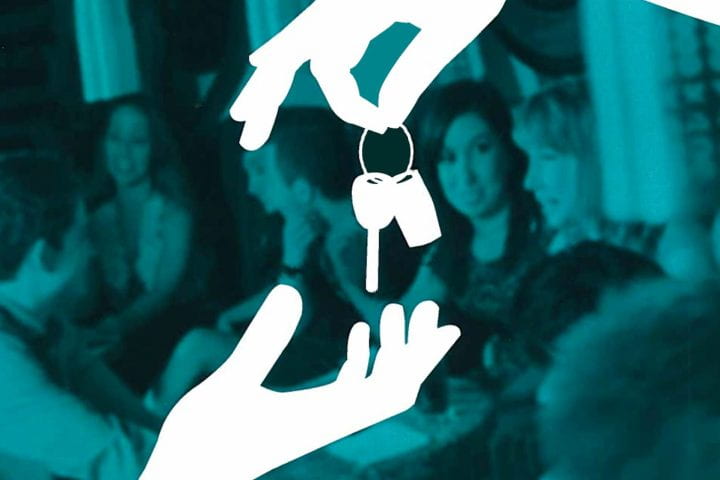Putting the brakes on drunk driving
UCI leads effort to raise awareness of advantages of designated drivers as spring break approaches.

California reported the largest decline in drunk-driving deaths of any state in the nation in 2010, according to recent statistics, and a $232,000 grant from the California Office of Traffic Safety – through the National Highway Traffic Safety Administration – to UC Irvine’s Health Education Center is helping to keep the trend on track.
In partnership with the center’s RADD College DUI Awareness Program, UCI has organized nine universities into a consortium over the last two years to prevent and promote alternatives to drinking and driving. The new funding will allow UCI to add four more campuses to the effort this year.
At a recent student health event on Ring Mall, Satenik Melkumyan, a second-year biology major, said the program reminds students to be responsible for each other.
“When I was in high school, I knew someone who was in a car accident the
night of senior prom because of drinking,” she said. “It could have been
prevented if friends had just gotten more involved.”
First-year criminology major Chryssy Miranda noted that with spring break coming up, the RADD message is especially relevant. “It’s OK to have fun,” she said, “but let someone else drive you home.”
Doug Everhart, interim director and alcohol programs manager at UCI’s Health Education Center, says students are receptive to the RADD College DUI Awareness Program because it doesn’t tell them what not to do.
“Instead, we point out what they can do,” he says. “If they’re going out and choose to drink, they need to assign a designated driver, take a taxi, walk to the event, or have some other plan for getting there and back safely.”
The ideas are not a particularly hard sell at UCI. Nearly half the students don’t drink alcohol at all, surveys have found, and only a small percentage participate in high-risk behaviors. “We have a respectful culture here that’s receptive to these positive alternatives, which helps us maintain a safe campus community,” Everhart notes.
With its initial grant of $451,000 from the state Office of Traffic Safety – via the NHTSA – UCI engaged UC Davis, Cal State Sacramento, USC, Cal State Fullerton, San Diego State, UC San Diego, the University of San Diego and Cal State San Marcos in the program.
“We saw the San Diego region as a model,” says Kristin Mendoza, grants project coordinator at UCI’s Health Education Center, “because it had representation from a UC, the Cal State system and a private university. So this year we’re looking to replicate that by adding the University of the Pacific in the Sacramento area and UCLA and Cal State Northridge in the Los Angeles region.”
The private university in Orange County is still to be determined, and plans are in the works to expand the consortium to the Bay Area and Inland Empire in coming years.
The RADD College DUI Awareness Program uses a variety of tactics to get its message across. At UCI, the crew appears at campus events such as Shocktoberfest, Reggaefest and Wayzgoose and speaks to Greek leaders and athletic teams. Toyota Motorsales U.S.A., Inc. donated a graphics-wrapped 2012 Scion xB to RADD to help spread the word at UCI and other participating campuses.
The entertainment industry’s voice for road safety, RADD encourages bars and restaurants to provide free nonalcoholic drinks, appetizers and other incentives to designated drivers carrying a RADD card.
Recently, RADD’s efforts were lauded in an NHTSA report showing that drunk-driving deaths in California had declined from 950 in 2009 to a record low of 791 in 2010.